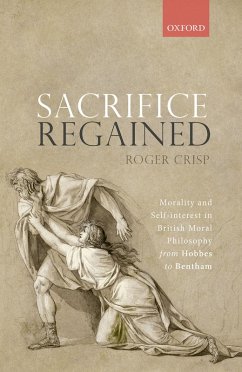Does being virtuous make you happy? Roger Crisp examines the answers to this ancient question provided by the so-called 'British Moralists', from Thomas Hobbes, around 1650, for the next two hundred years, until Jeremy Bentham. This involves elucidating their views on happiness (self-interest, or well-being) and on virtue (or morality), in order to bring out the relation of each to the other. Themes ran through many of these writers: psychological egoism, evaluative hedonism, and?after Hobbes?the acceptance of self-standing moral reasons. But there are exceptions, and even those taking the standard views adopt them for very different reasons and express them in various ways. As the ancients tended to believe that virtue and happiness largely coincide, so these modern authors are inclined to accept posthumous reward and punishment. Both positions sit uneasily with the common-sense idea that a person can truly sacrifice their own good for the sake of morality or for others. This book shows that David Hume?a hedonist whose ethics made no appeal to the afterlife?was the first major British moralist to allow for, indeed to recommend, such self-sacrifice. Morality and well-being of course remain central to modern ethics, and Crisp demonstrates how much there is to learn from this remarkable group of philosophers.
Dieser Download kann aus rechtlichen Gründen nur mit Rechnungsadresse in A, B, BG, CY, CZ, D, DK, EW, E, FIN, F, GR, HR, H, IRL, I, LT, L, LR, M, NL, PL, P, R, S, SLO, SK ausgeliefert werden.


